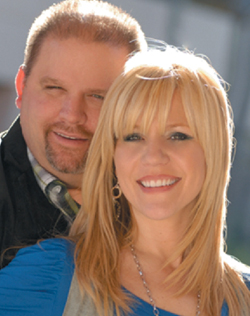How attitudes and expertise hinder or release true worship
Even the most casual observer of contemporary church worship can see how radically the landscape has changed. Christian worship music has never stopped evolving across 2,000 years of history, and modern American worship music would hardly be recognizable to the believers in the upper room. That is not bad. It simply means that vital worship is always relevant in its historical context.
In recent history, there has been a shift from an emphasis on musicality toward an emphasis on entering God’s presence. In many churches, the big choir and orchestra sound of the last 20 years of the 20th century has yielded to a more casual feel of smaller worship “teams.” The worship leader has largely replaced the choir director, at least in most charismatic and Pentecostal churches. Even in many evangelical churches choruses have taken the place of hymns and a choir “special.”
Among the youngest of worshipers—especially college
students—this has often created a mentality that suggests, “The more imperfect the sound, the more authentic the worship.” This was an overcorrection of what they perceived as the errors of the previous generation. The problem, of course, is that sloppy is not sacred.
We should teach young worshipers to enter in with authenticity and excellence. In training this generation to worship and lead in worship, we are seeing that the temptations of ego are not tied to one generation or style of music. Therefore, the emphasis must be on Jesus, the one being worshipped, not the one leading. The keys to teaching this generation to enter in are tied directly to relationship, faith and a spirit of obedience. Rebellious and self-absorbed worship leaders are not closer to entering in just because their “style” is cutting edge.
Moses and King David show us the way in. How interesting that the further back we look, the more engaging the truths of worship are to today’s college-age worshipers. Mosaic and Davidic worship models speak more to contemporary worship than concepts and styles of just 50 years ago.
There is no way to understand those ancient models apart from the tabernacle. There was an outer court, inner court and the holy of holies, which contained the ark of the covenant—three areas that become the platform for worship today.
1. Thankfulness is the doorway into His presence. The spirit of entitlement is the death of grateful, humble worship. This generation has been saturated in a deadening spirit of entitlement. To truly enter in, that spirit must be broken, and in its place must be cultivated a genuine hunger for the grace of God. We believe it is more important to teach thankfulness than key changes.
2. Praising God propels us into His presence. To be other-centered—to compliment, praise or build up another—is dismissed by many young people today as demeaning. Self-esteem, they often think, suffers if I lift up someone else. That, more than anything else, turns worship into theater.
If a worship leader cannot obey and lift up his pastor whom he can see, how can he expect to obey and lift up God who is invisible? The other-centered heart that humbly exalts God and honors others—especially authority—is at the heart of worship. When we praise God it confuses the enemy and releases victory in our lives.
3. Experience the holy of holies ... often! The issue here is not simply to be in His presence but to experience complete immersion and receive His presence. King David said that in His presence there is fullness of joy. Blessings such as renewal of mind, deliverance and peace are to be experienced, not just sung about.
For too long worship leaders and music ministers have tried to lead people to places they have never been. Those of us who are called to teach them to worship and to lead others in worship must constantly remind them that they are not the first generation to experience the Lord, the holiest of all. When worshipping is a frequently visited and familiar place—where leader and worshiper “enter in”—then it will be real.
Wayne and Jennifer Lee are the directors of International Worship Center and of campus worship at Oral Roberts University. The Lees have ministered widely in the areas of worship consulting, conference speaking and leadership training.
Get Spirit-filled content delivered right to your inbox! Click here to subscribe to our newsletter.
Dr. Mark Rutland's
National Institute of Christian Leadership (NICL)
The NICL is one of the top leadership training programs in the U.S. taught by Dr. Mark Rutland. If you're the type of leader that likes to have total control over every aspect of your ministry and your future success, the NICL is right for you!
FREE NICL MINI-COURSE - Enroll for 3-hours of training from Dr. Rutland's full leadership course. Experience the NICL and decide if this training is right for you and your team.
Do you feel stuck? Do you feel like you’re not growing? Do you need help from an expert in leadership? There is no other leadership training like the NICL. Gain the leadership skills and confidence you need to lead your church, business or ministry. Get ready to accomplish all of your God-given dreams. CLICK HERE for NICL training dates and details.The NICL Online is an option for any leader with time or schedule constraints. It's also for leaders who want to expedite their training to receive advanced standing for Master Level credit hours. Work through Dr. Rutland's full training from the comfort of your home or ministry at your pace. Learn more about NICL Online. Learn more about NICL Online.


